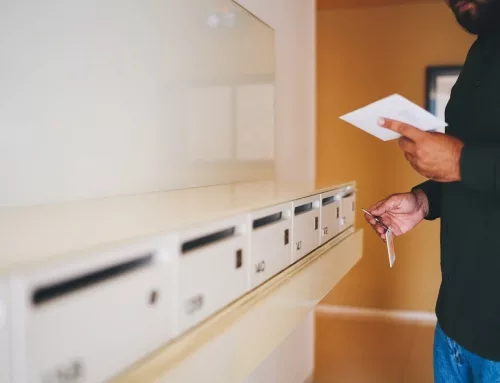Doing your taxes can be a massive headache, even for those with little to declare. However, when you throw benefits you’re receiving from the government, such as disability benefits, paying your taxes becomes that much harder. One thing that many people who receive benefits find themselves asking is: can the IRS take back money from my disability benefits?
Generally, this is not the case. However, if you owe a debt to the federal government, your disability benefits may be used to pay back any money that you owe. It’s a complicated situation, so in this article we’re going to talk about what happens when you owe taxes and receive disability benefits. But first thing’s first, what are disability benefits?
What are disability benefits?
Disability benefit is commonly granted when a person is disabled – either their whole lives or through an injury or illness that means they can no longer work to earn a regular wage. These are paid as a form of insurance paid by the Social Security Administration, and can also sometimes be awarded to those that have served for a long enough period of time and took out a part of their salary to pay for this benefit.
10,153,205 people received disability benefits in 2016 from the Social Security Administration. With such a large number of people receiving disability benefits, there’s a large chance you may know someone who needs disability benefits to top up their salary or support them through their career. It’s important to understand how disability benefits could affect you or someone you love when it comes to paying back taxes. Thankfully, creditors in most cases will not take money for any debts you owe from disability benefits that you are claiming.
This is because the Disability Benefits Centre have said that while creditors can submit a petition for you to pay back the money you owe, it’s actually illegal for creditors to garnish any disability benefits that you have been awarded. In many cases, those in receipt of disability insurance need that money to pay for essentials such as rent, food and warmth. It’s worth noting though, that receiving disability insurance benefits does not mean that debts you owe won’t be taken out of other income you earn, whether it’s through alimony checks or a business you’ve started at home. Also, when you’re no longer on disability benefit, you will be liable to pay back all of the creditors you owe.
It’s important to be aware that on average, disability benefits pay out around $1,234 a month, which may not cover all of your monthly expenses as well as paying back any debts you owe. And, if you owe the federal government money, your situation becomes even more complicated.
Why would I owe back any taxes?
Basically, you’d owe back taxes from the previous year if you haven’t paid it back yet. Reports from the IRS suggest that 8.2 million Americans owed $83 billion in back taxes to the Federal Government in 2009, and the number is predicted to have grown exponentially over the past 11 years as the population of the USA is always growing.
One of the most common reasons for paying back taxes is being unable to pay your taxes from the previous year, or unwillingness to do so. Failure to pay taxes will mean you can expect the IRS to show up at your home demanding the money you’ve not yet paid. This could also lead to further fines, penalties and interest, and even legal action against you.
Paying taxes can be stressful and confusing, and if you’re not sure where to turn, our tax resolution specialist are here to help. While it’s important to remember the tax payment deadline (April 15th), it’s understandable that people have busy lives and in most cases, the IRS will give you an extension to pay. However, it’s important to repay this as soon as possible to avoid interest on the amount you owe and further action being taken against you.
What happens if I’m disabled and owe back taxes?
It can be stressful owing taxes when you’re in debt or barely make ends meet, so here’s some information on what to do if you’re disabled and owe back taxes.
It’s important to understand that while it’s not legal for creditors to garnish your disability benefit to pay back debts, it is legal for the IRS to do so. However, this will only be a portion of the benefits you receive. Since 2002 it’s been legal for the IRS to garnish 15% of Disability benefits, including Federal Old-Age and Survivor benefits if you owe any back taxes to the federal government.
Basically, the IRS will issue a ‘levy’ on your disability insurance income. A levy “permits the legal seizure of your property to satisfy a tax debt”, and they can do so on any asset until the debt has been repaid such as bank accounts or physical assets like property, and forms of income, including disability insurance. It’s also legal for the IRS to levy and garnish Social Security benefits if the recipient owes delinquent federal taxes.
Essentially, while it’s illegal for creditors to garnish your disability insurance income, the IRS are an exception for federal government debts. There is one exception to this, though. Disability benefits issued by the Department of Veterans Affairs are not considered taxable income, and cannot be garnished to pay any debt owed to the IRS because of back taxes This is useful information to have if you’re on disability benefits or will be in the near future so that you know where your rights are.
Conclusion
If you owe money to the federal government, you will receive a letter confirming the levy put in place by the IRS 30 days before taking 15% of your disability benefit. This will give you time to find or borrow the money should you wish to continue receiving the full amount of your disability insurance. Remember, if you’re confused or struggling and need tax debt relief, contact us today by phone (1-(855) 749-2859) or email.
Doing your taxes can be a massive headache, even for those with little to declare. However, when you throw benefits you’re receiving from the government, such as disability benefits, paying your taxes becomes that much harder. One thing that many people who receive benefits find themselves asking is: can the IRS take back money from my disability benefits?
Generally, this is not the case. However, if you owe a debt to the federal government, your disability benefits may be used to pay back any money that you owe. It’s a complicated situation, so in this article we’re going to talk about what happens when you owe taxes and receive disability benefits. But first thing’s first, what are disability benefits?
What are disability benefits?
Disability benefit is commonly granted when a person is disabled – either their whole lives or through an injury or illness that means they can no longer work to earn a regular wage. These are paid as a form of insurance paid by the Social Security Administration, and can also sometimes be awarded to those that have served for a long enough period of time and took out a part of their salary to pay for this benefit.
10,153,205 people received disability benefits in 2016 from the Social Security Administration. With such a large number of people receiving disability benefits, there’s a large chance you may know someone who needs disability benefits to top up their salary or support them through their career. It’s important to understand how disability benefits could affect you or someone you love when it comes to paying back taxes. Thankfully, creditors in most cases will not take money for any debts you owe from disability benefits that you are claiming.
This is because the Disability Benefits Centre have said that while creditors can submit a petition for you to pay back the money you owe, it’s actually illegal for creditors to garnish any disability benefits that you have been awarded. In many cases, those in receipt of disability insurance need that money to pay for essentials such as rent, food and warmth. It’s worth noting though, that receiving disability insurance benefits does not mean that debts you owe won’t be taken out of other income you earn, whether it’s through alimony checks or a business you’ve started at home. Also, when you’re no longer on disability benefit, you will be liable to pay back all of the creditors you owe.
It’s important to be aware that on average, disability benefits pay out around $1,234 a month, which may not cover all of your monthly expenses as well as paying back any debts you owe. And, if you owe the federal government money, your situation becomes even more complicated.
Why would I owe back any taxes?
Basically, you’d owe back taxes from the previous year if you haven’t paid it back yet. Reports from the IRS suggest that 8.2 million Americans owed $83 billion in back taxes to the Federal Government in 2009, and the number is predicted to have grown exponentially over the past 11 years as the population of the USA is always growing.
One of the most common reasons for paying back taxes is being unable to pay your taxes from the previous year, or unwillingness to do so. Failure to pay taxes will mean you can expect the IRS to show up at your home demanding the money you’ve not yet paid. This could also lead to further fines, penalties and interest, and even legal action against you.
Paying taxes can be stressful and confusing, and if you’re not sure where to turn, our tax resolution specialist are here to help. While it’s important to remember the tax payment deadline (April 15th), it’s understandable that people have busy lives and in most cases, the IRS will give you an extension to pay. However, it’s important to repay this as soon as possible to avoid interest on the amount you owe and further action being taken against you.
What happens if I’m disabled and owe back taxes?
It can be stressful owing taxes when you’re in debt or barely make ends meet, so here’s some information on what to do if you’re disabled and owe back taxes.
It’s important to understand that while it’s not legal for creditors to garnish your disability benefit to pay back debts, it is legal for the IRS to do so. However, this will only be a portion of the benefits you receive. Since 2002 it’s been legal for the IRS to garnish 15% of Disability benefits, including Federal Old-Age and Survivor benefits if you owe any back taxes to the federal government.
Basically, the IRS will issue a ‘levy’ on your disability insurance income. A levy “permits the legal seizure of your property to satisfy a tax debt”, and they can do so on any asset until the debt has been repaid such as bank accounts or physical assets like property, and forms of income, including disability insurance. It’s also legal for the IRS to levy and garnish Social Security benefits if the recipient owes delinquent federal taxes.
Essentially, while it’s illegal for creditors to garnish your disability insurance income, the IRS are an exception for federal government debts. There is one exception to this, though. Disability benefits issued by the Department of Veterans Affairs are not considered taxable income, and cannot be garnished to pay any debt owed to the IRS because of back taxes This is useful information to have if you’re on disability benefits or will be in the near future so that you know where your rights are.
Conclusion
If you owe money to the federal government, you will receive a letter confirming the levy put in place by the IRS 30 days before taking 15% of your disability benefit. This will give you time to find or borrow the money should you wish to continue receiving the full amount of your disability insurance. Remember, if you’re confused or struggling and need tax debt relief, contact us today by phone (1-(855) 749-2859) or email.





